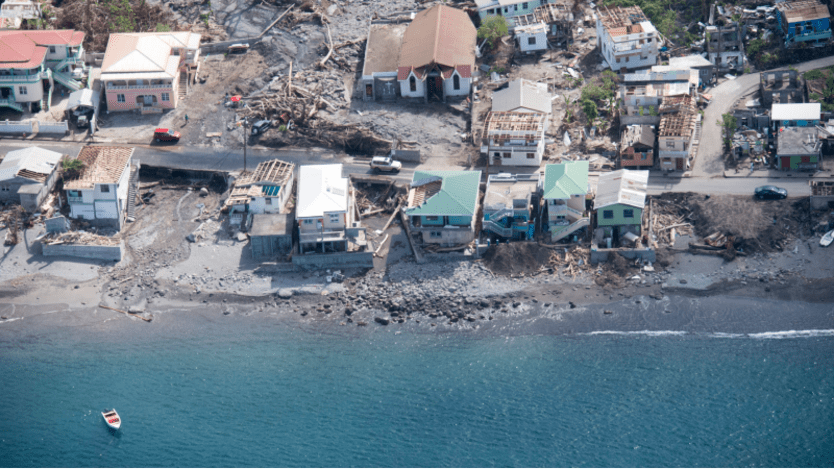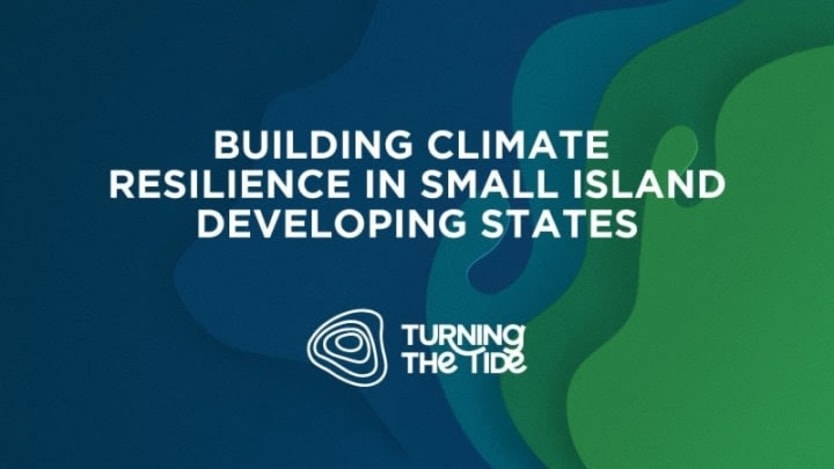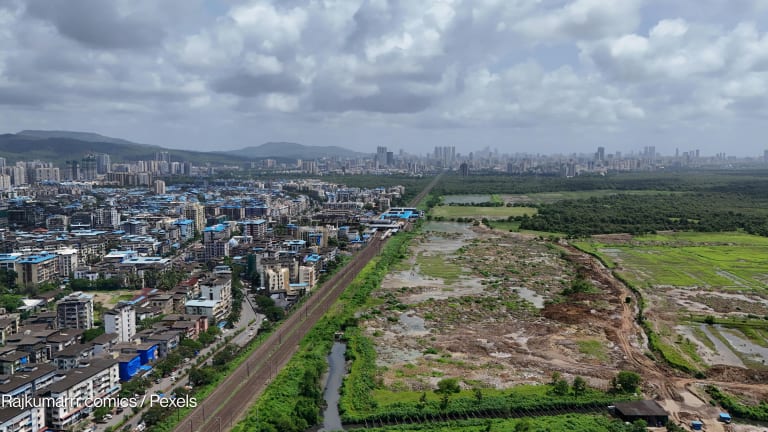Dominica determined to become world's first climate-resilient nation

NEW YORK — Resilience is a buzz word that permeates nearly every conference and conversation on climate change. Dominica, a Caribbean island of just 70,000 residents, wants to define what the term means by setting the goal of becoming the first climate-resilient nation by 2030.
The ongoing plan is two years underway, influencing every budgetary decision and construction project, according to Pepukaye Bardouille, CEO at the Climate Resilience Execution Agency for Dominica, or CREAD. Becoming resilient goes beyond planning for extreme weather events, which particularly threaten low-income, small islands like Dominica. It’s also about community engagement and strong communication, Bardouille said.
“The word resiliency is thrown around a lot and I do see plenty of places where it is just a buzzword that is thrown in ... In Dominica, there is actually a structure and a plan behind it.”
— James Ellsmoor, founder, the Virtual Island Summit"When I say resilience, it's not about cleaning beaches. It's about disaster management committees at your village level. It's about making sure that people who aren't generally included, be they disabled or elderly, are brought into the mainstream so they understand their rights and we understand their vulnerability,” Bardouille told Devex.
“Yes, we're implementing projects, but we're also kind of changing mindsets and behaviors at the national level. And that is beginning to be visible,” Bardouille continued.
The Virtual Island Summit: Did it work?
The Virtual Island Summit was a fully digital, week-long, zero-carbon conference. Founder James Ellsmoor discusses what worked and where fully online conferences can be improved.
Resilience is increasingly central to conversations among Caribbean islands and other small island states, but the word often translates into various meanings for different countries and communities, according to James Ellsmoor, founder of the Virtual Island Summit, an annual online event that convenes small islands.
“The word resiliency is thrown around a lot and I do see plenty of places where it is just a buzzword that is thrown in, but it does not mean anything. In Dominica, there is actually a structure and a plan behind it. Resiliency has been incorporated into a broader government strategy,” Ellsmoor said.
But the goal of achieving complete resilience is lofty, Ellsmoor cautioned, especially for an island like Dominica, which experienced a monetary damage loss equivalent to 200% of its GDP following Hurricane Maria in 2017.
“If you are in such a small country where your entire economy can be destroyed in one night, how resilient can you be? I am not sure, but you can definitely prepare and you can increase resilience,” Ellsmoor said.
Approximately 50% of Dominica’s population lives in physically vulnerable areas, such as near an eroding coastline or a volcano. The mountainous island, situated in between the French islands Guadeloupe and Martinique, has also experienced multiple, back-to-back powerful hurricanes in recent years, placing it on the “front line of the war on climate change,” Dominica Prime Minister Roosevelt Skerrit has said.
Dominica launched CREAD in 2018, forming a new government agency to mainstream resilience into all areas of the country’s growth. The agency has a four-year mandate.
Bardouille, a Dominican native and former senior operations officer with the International Finance Corporation, reports directly to the prime minister and liaises with government agencies on individual proposals to build schools, and on agricultural projects. Bardouille might ask a minister of education, for example, where would this school be built, and how potentially vulnerable is its location?
“We're hastily kind of scrubbing the budget for programs that are currently underway and making sure that they are aligned with resilience. If they're not, we'll rethink whether or not they stay in the budget, or if they get phased out. I don't know of any other country that's done that,” Bardouille said.
The COVID-19 pandemic has impacted CREAD’s operations, temporarily halting construction projects. But it has also placed emphasis on the importance of a robust economy and strong communities, according to Bardouille, allowing the agency’s work to continue.
The resilience work also extends into diversifying the economy, which is primarily dependent on agriculture, and increasing community canvassing to engage citizens on potential risks and safety nets they can turn to.
“For me, it's simple. You need to be viable as a small island state in a very large, globalizing and very unstable global economy. And then you need to be sustainable in terms of your development pathway. And if you do those two things, you are actually resilient,” Bardouille said.
Dominica’s work on resilience was spotlighted during the fifth annual Clinton Global Initiative Action Network on Post-Disaster Recovery meeting in San Juan, where Caribbean leaders gathered to troubleshoot problems and share lessons on climate change preparedness.
Dominica’s plan to become resilient within the decade requires approximately $4 billion to $5 billion in funding, according to Bardouille. About 40% of that funding could come from Dominica's government.
Dominica’s small size makes it easier to engage with communities and individuals about steps toward resilience could serve as a testing model for other vulnerable nations that require sustainable climatic solutions, Bardouille said.
"One way of looking at it is who cares?” said Bardouille, regarding the island’s small size.
“The other way of looking at it is, if you can't do it in a country of 70,000 people, good luck doing it in Indonesia, or in China,” she continued.
Visit the Turning the Tide series for more coverage on climate change, resilience building, and innovative solutions in small island developing states. You can join the conversation using the hashtag #TurningtheTide.

Search for articles
Most Read
- 1
- 2
- 3
- 4
- 5








